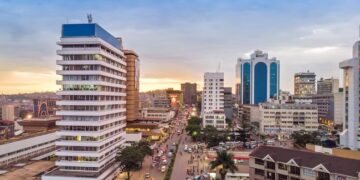Minister-designate for Finance, Ken Ofori-Atta, has said the fast-paced accumulation of debt by the previous National Democratic Congress (NDC) administration was what led the country to undergo the $918 million Extended Credit Facility (ECF) programme of the International Monetary Fund (IMF).
Responding to a question posed to him by the Appointments Committee of Parliament as to whether there are some differences in the rate of debt accumulation between the incumbent government and the previous NDC administration, Mr Ofori-Atta, noted debt accumulation under the New Patriotic Party (NPP) has been much slower than under the NDC’s watch.
The NDC is reported to have inherited a total debt amount of Ghs 9.5 billion in 2009, but left behind a total debt amount of Ghs 122 billion in 2017 which was inherited by the present NPP administration.
According to the Minister-designate for Finance, the NDC’s rate of debt accumulation on assumption of power from 2009 to 2016 amounted to 1,200 percentage points. The NPP’s total debt accumulation since 2017 to date in percentage terms is close to 150 percent.
“Usually you get into the state of bankruptcy with regards to the speed of debt accumulation and therefore when you have a 1,200 percent debt accumulation that certainly leads you into the bosom of the IMF. You can see in our period that in terms of the rate of growth ours has been slower and you can also identify the specific items such as the financial sector costs, energy costs and Covid-19, all which led to the increase in debts,” he said.
“But I think we are in a good place to manage the sustainability of the debts as we look at the 3-year plan to bring it down to sustainable levels and also make sure that our deficit returns to below 5 percent as mandated by the law. So yes the 1,200 percent increment is egregious and will certainly lead to an unbalancing of the economy, I think ours has been more gradual and specific on the items which we had to spend on and which includes Mahama’s recommendation that we tackle the banking sector,” he added.
Mr Ken Ofori-Atta’s assertion of a 1,200 percent accumulation in debt under the previous John Atta-Mills and John Mahama NDC administrations, is in sharp contrast to the 267 percent and 243 percent debt accumulation rate from 2009 to 2012 and from 2012 to 2016 posited by the Vice President, Dr Mahamudu Bawumia in an interview last year.
Not net-increased taxes
On the issue of the newly introduced taxes in the 2021 Budget Statement, the Finance Minister-designate posited the current administration has not net-increased taxes imposed on Ghanaians as compared to the previous administration.
“I think if we look at the number of taxes we abolished and the reduction in electricity prices at some point in time, exit from the IMF programme and what we did during the height of Covid pandemic last year, and still be able to sustain the type of growth we had, then it is quite clear that on a net basis we have not really hurt the Ghanaian tax payer and it’s a lot better than it was under the previous regime if we look at the statistics for 2016 in which productivity was down and yet certain taxes were raised and which we came to abolish. And so no, we have not net-increased taxes,” he stated.
Speaking further, Mr Ofori-Atta averred the 2021 budget has rather introduced more incentives than taxes and levies, citing the 30 percent income tax rebate for hotels and restaurants, education, arts & entertainment, travel and tours companies for the second, third and fourth quarters of 2021.
Other tax incentives introduced in the budget include; the suspension of quarterly income tax instalment payments for the second, third and fourth quarters of 2021 for small businesses using the income tax stamp system.
The suspension of quarterly instalment payments of the vehicle income tax for the third and fourth quarters of 2021 for trotros and taxis as part of measures to reduce the cost of transportation. And the extension of the waiver of interest as incentive for early payment of accumulated tax arrears.









